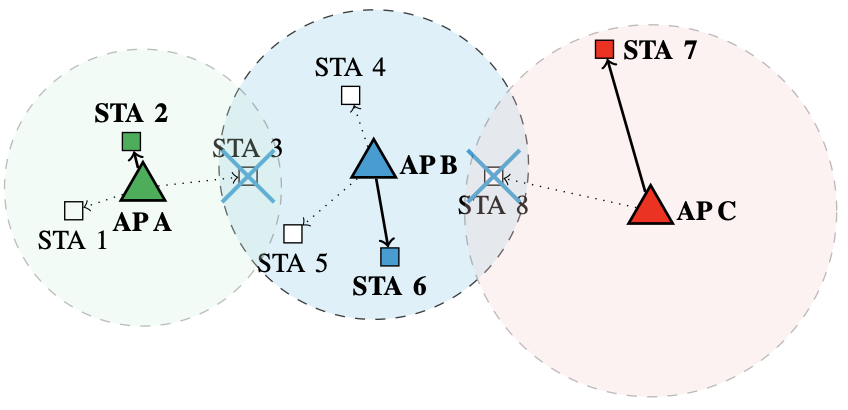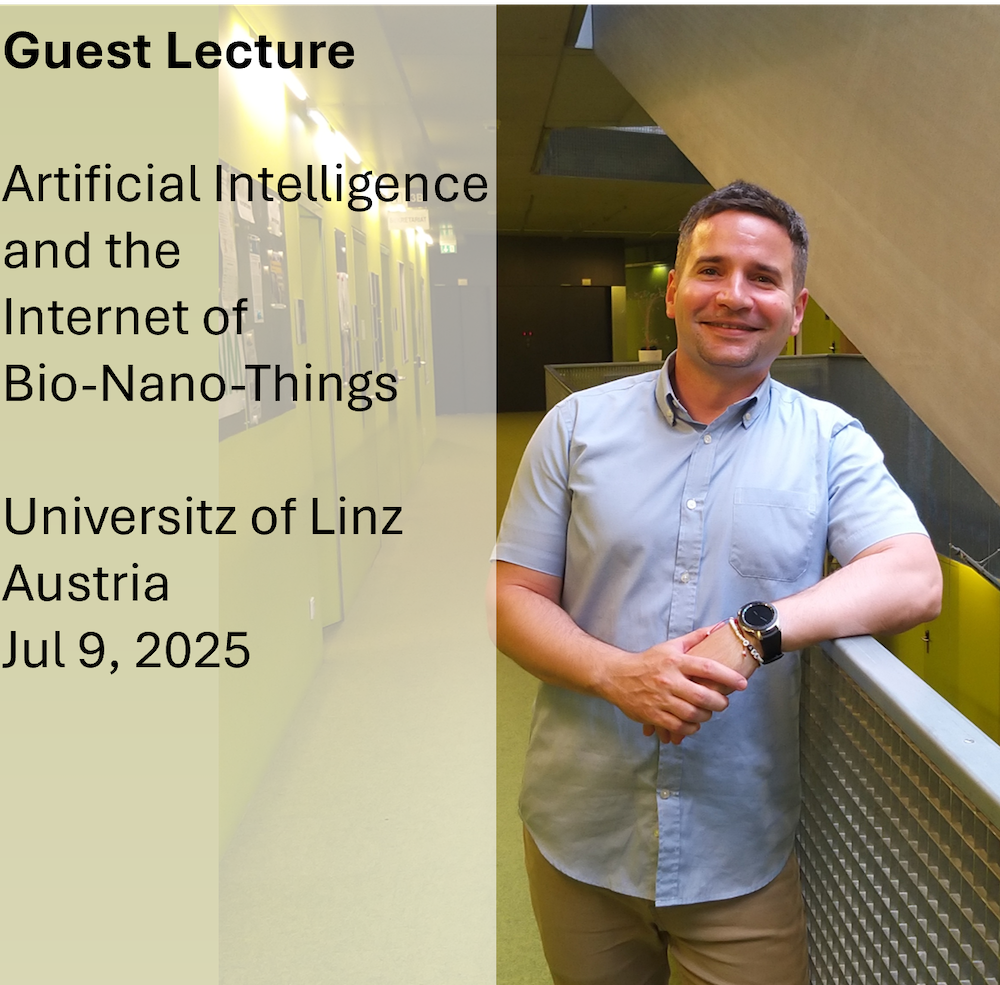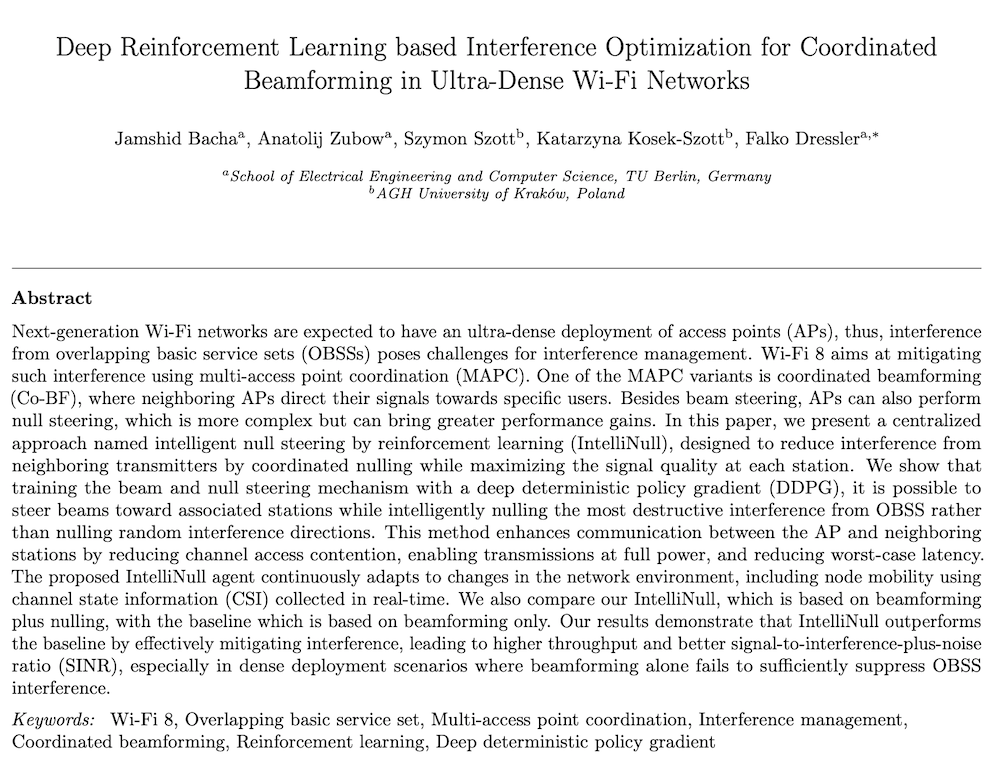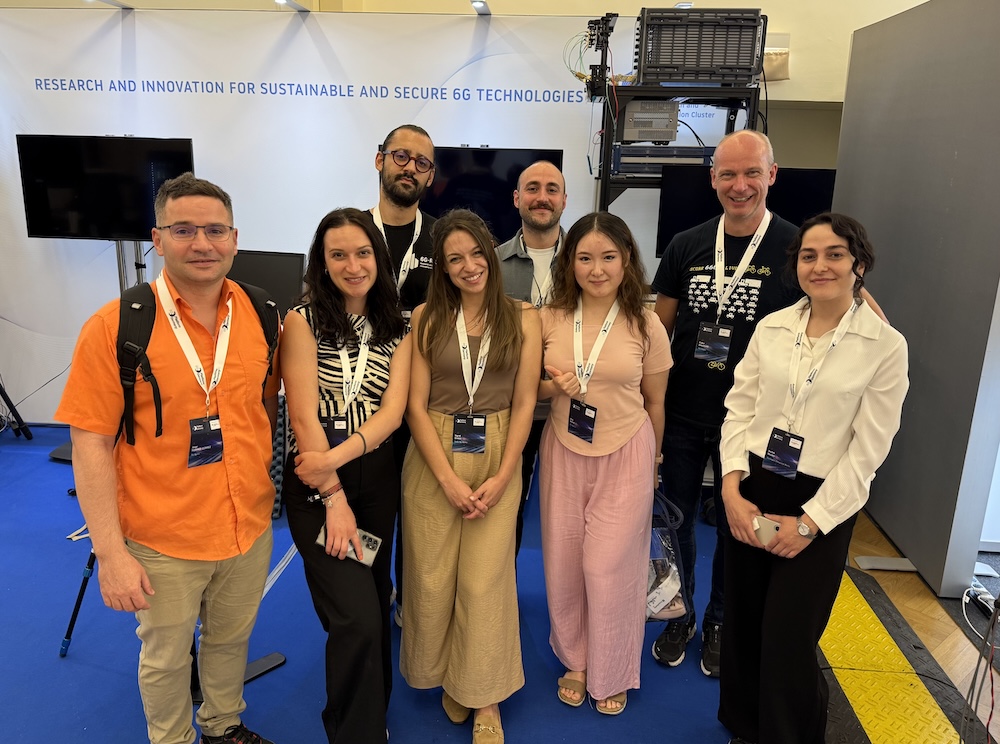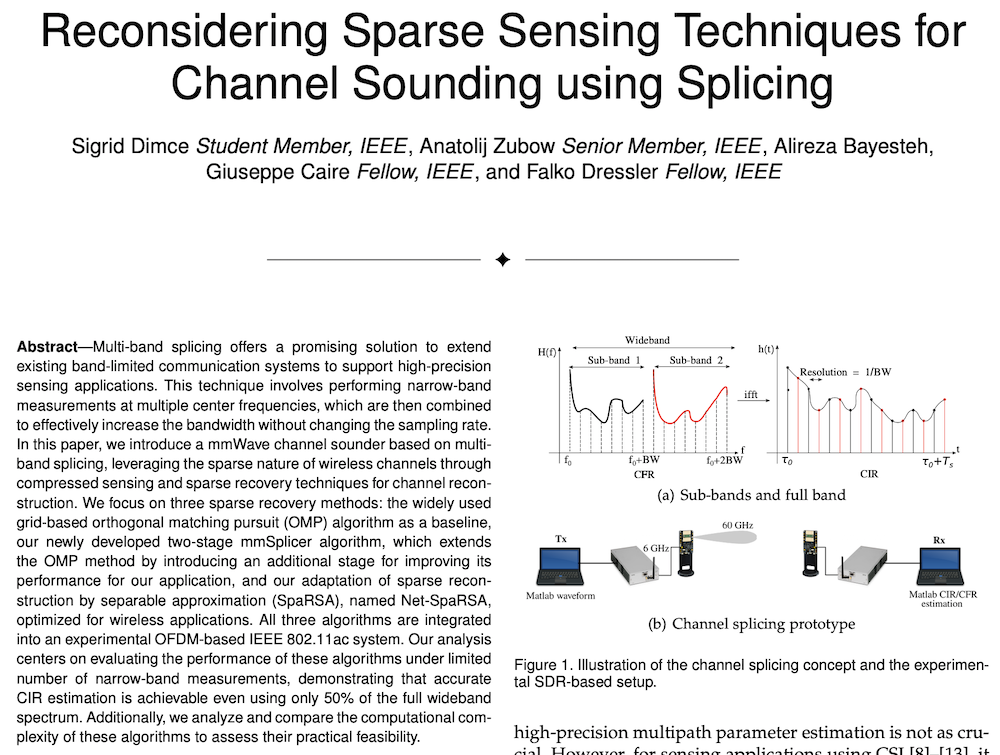Literature Database Entry
debus2024reinforcement
Lisa Y. Debus, Pit Hofmann, Jorge Torres Gómez, Frank H. P. Fitzek and Falko Dressler, "Reinforcement Learning-based Receiver for Molecular Communication with Mobility," Proceedings of VDE Workshop Biosignals, Göttingen, Germany, February 2024.
Abstract
Research in molecular communication (MC) is moving forward in big steps, enabling next-generation communication between nanosensors and presenting an alternative communication model for applications in life sciences and other industrial applications. While a lot of the current research in investigates the setup and en-/decoding process in these testbeds, few tackle the problem of inherently mobile structures with ever-changing channel characteristics and achieving symbol synchronization under these circumstances. In this paper, we employ reinforcement learning (RL) to present an approach to this problem. Using data from a real-world macroscale testbed, we train an RL agent to detect synchronization sequences via threshold adaption in a mobile setting. We comparatively evaluate our approach with the state of the art and report the RL agents ability to adapt to changing channel behavior produced by mobility, achieving a low probability of missed detection and small misalignment with the symbol time.
Quick access
Authors' Version ![]() (PDF on this web site)
(PDF on this web site)
BibTeX ![]()
Contact
Lisa Y. Debus
Pit Hofmann
Jorge Torres Gómez
Frank H. P. Fitzek
Falko Dressler
BibTeX reference
@inproceedings{debus2024reinforcement,
author = {Debus, Lisa Y. and Hofmann, Pit and Torres G{\'{o}}mez, Jorge and Fitzek, Frank H. P. and Dressler, Falko},
title = {{Reinforcement Learning-based Receiver for Molecular Communication with Mobility}},
publisher = {VDE},
address = {G{\"{o}}ttingen, Germany},
booktitle = {VDE Workshop Biosignals},
month = {2},
year = {2024},
}
Copyright notice
Links to final or draft versions of papers are presented here to ensure timely dissemination of scholarly and technical work. Copyright and all rights therein are retained by authors or by other copyright holders. All persons copying this information are expected to adhere to the terms and constraints invoked by each author's copyright. In most cases, these works may not be reposted or distributed for commercial purposes without the explicit permission of the copyright holder.
The following applies to all papers listed above that have IEEE copyrights: Personal use of this material is permitted. However, permission to reprint/republish this material for advertising or promotional purposes or for creating new collective works for resale or redistribution to servers or lists, or to reuse any copyrighted component of this work in other works must be obtained from the IEEE.
The following applies to all papers listed above that are in submission to IEEE conference/workshop proceedings or journals: This work has been submitted to the IEEE for possible publication. Copyright may be transferred without notice, after which this version may no longer be accessible.
The following applies to all papers listed above that have ACM copyrights: ACM COPYRIGHT NOTICE. Permission to make digital or hard copies of part or all of this work for personal or classroom use is granted without fee provided that copies are not made or distributed for profit or commercial advantage and that copies bear this notice and the full citation on the first page. Copyrights for components of this work owned by others than ACM must be honored. Abstracting with credit is permitted. To copy otherwise, to republish, to post on servers, or to redistribute to lists, requires prior specific permission and/or a fee. Request permissions from Publications Dept., ACM, Inc., fax +1 (212) 869-0481, or permissions@acm.org.
The following applies to all SpringerLink papers listed above that have Springer Science+Business Media copyrights: The original publication is available at www.springerlink.com.
This page was automatically generated using BibDB and bib2web.

